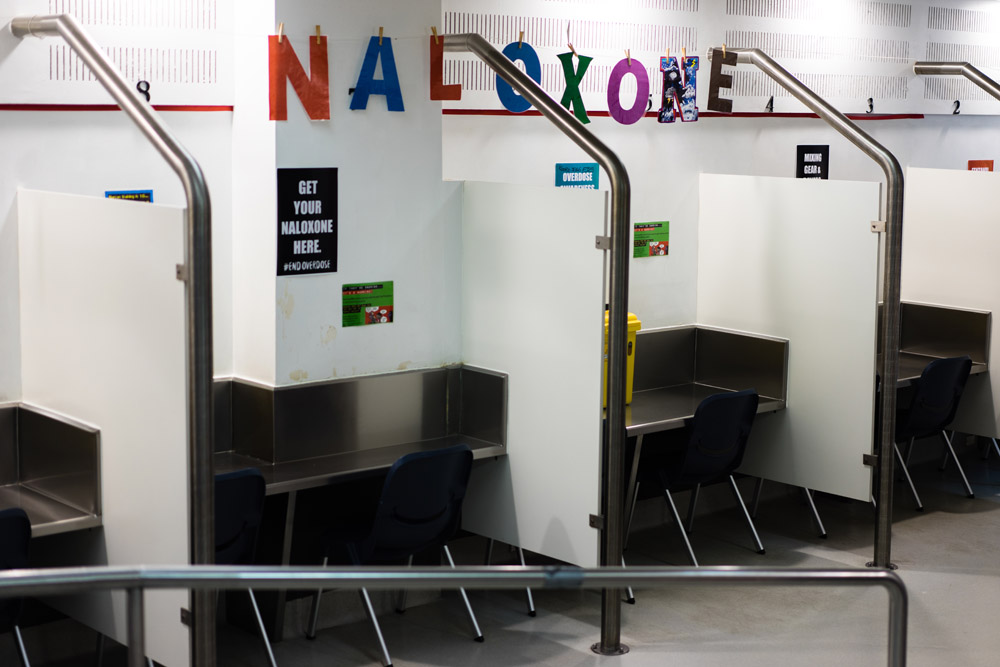A large majority of people who use opioids in three coastal cities would utilize safe consumption spaces if they were made available, according to a new study conducted by researchers at Johns Hopkins Bloomberg School of Public Health.
Of more than 300 people surveyed in Boston, Baltimore and Providence, a little over 250 people, or 77 percent, reported that they would use the sites. The researchers spoke with people who are among the most vulnerable drug users: 70 percent of those surveyed were homeless, while 60 percent “habitually” used heroin in public places, mostly injecting.
About 73 percent reported recent use of a drug they suspected had contained fentanyl—a synthetic opioid that is much more potent than heroin, and thus brings higher overdose risk. Much evidence shows that legally sanctioned SCS, with medical professionals prepared to reverse an overdose and social workers to connect clients with other social and health resources, would reduce mortality and increase well-being for this population.
“On the whole, we found a strong willingness to use safe consumption spaces. This is important because often the voices of people who use drugs are not included in policy debates or in the implementation of public health interventions,” said lead author Ju Nyeong Park, a researcher in the Bloomberg School’s Department of Health, Behavior and Society.
The lifesaving potential of SCS has been demonstrated in Canada and Australia, among other countries that have legalized them. In the United States, where they remain prohibited, a Seattle study projected that a single legal SCS in the city could annually avert 167 overdoses and prevent six overdose deaths—if it were to be made legal.
But SCS in the US face legal hurdles posed by drug-war laws—like the so-called “crack house” statute in the 1970 Controlled Substances Act—and drug warriors, such as Attorney General Rod Rosenstein.
Other barriers to realizing an SCS in Baltimore, Boston or Providence could relate to its potential clients. The people surveyed by the Johns Hopkins researchers expressed concern that attending an SCS could jeopardize their safety—if law enforcement were to “bait” clients—and privacy.
Yet their overall backing for SCS mirrors that recently seen in Philadelphia, where a recent survey measured 90 percent local support for a proposed site in the Kensington neighborhood.
Photograph of a safe consumption site in Australia, by Nigel Brunsdon via Filter





Show Comments